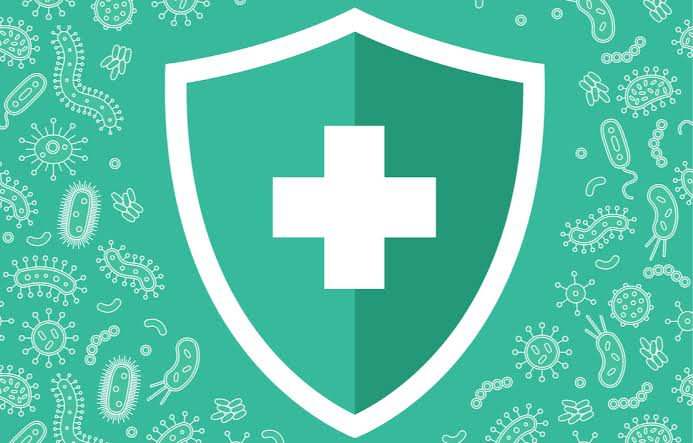
Corona means ‘crown’. The word Corona comes from the crown like projections on the surface of a large family of viruses which may cause illness in humans or animals. In humans, Coronavirus cause respiratory tract infections that are typically mild, such as some cases of the common cold, though rare forms can be lethal, such as SARs, MERs and COVID-19.
COVID-19 is an infectious disease caused by severe acute respiratory syndrome coronavirus 2 (SARS-CoV-2). The disease was first identified in 2019 in Wuhan, China, and has since spread globally, resulting in the 2019–20 coronavirus pandemic.
How can it spread?
Coronaviruses are zoonotic. People can catch COVID-19 from others who have the virus. The disease can spread from person to person through small droplets from the nose or mouth which are spread when a person with COVID-19 coughs or exhales. These droplets land on objects and surfaces around the person. Other people then catch COVID-19 by touching these objects or surfaces, then touching their eyes, nose or mouth. People can also catch COVID-19 if they breathe in droplets from a person with COVID-19 who coughs out or exhales droplets.
Studies to date suggest that the virus that causes COVID-19 is mainly transmitted through contact with respiratory droplets rather than through the air.
Symptoms of COVID-19 are non-specific and those infected may either be asymptomatic or develop flu like symptoms which includes fever, tiredness and dry cough. Some patients may have aches and pains, nasal congestion, runny nose, sore throat or diarrhea.
Further development can lead to severe pneumonia, acute respiratory distress syndrome, septic shock and death.
The usual time period between infection and symptom onset ranges from one to fourteen days. Older people, and those with underlying medical problems like high blood pressure, heart problems or diabetes are more likely to develop serious illness.
How can we prevent it?
As of now, there is no vaccine against COVID-19. A number of private companies and research institutions are working to develop vaccines.
Some preventive suggestions includes goid hygiene, such as washing hands when appropriate, avoiding touching eyes, nose or mouth with unwashed hands, coughing/ sneezing into a tissue, wearing a surgical mask in public, thoroughly cooking meat and eggs etc. Let’s discuss some of these in detail.
1. Handwashing
To prevent the spread of the disease people should wash hands often with soap and water for atleast 20 seconds, especially after going to the toilet or when hands are visibly dirty, before eating and after blowing one’s nose, coughing or sneezing. It is recommended to use a hand sanitiser with at least 60% alcohol by volume when soap and water are not readily available.
Social Distancing includes infection control action intended to slow the spread of disease by minimising close contact between individuals. Methods includes quarantine, travel restrictions and closing schools, workplace, stadiums, theatres or shopping centers.
2. Respiratory Hygiene
Health organisations recommends that people cover their mouth and nose with a tissue when coughing or sneezing (which shall then be disposed off immediately). Masks are not recommended for most people. There is little evidence that the wearing of surgical masks by uninfected people at low risk is effective, although they may help people avoid touching their face. The use of surgical masks by those infected has been recommended. Masks have also been recommended for use by those taking care of someone who may have the disease.
3. Self Isolation at home has been recommended for those diagnosed with COVID-19 and those who suspect they have been infected.
Individuals are advised to:
- Stay at home except to get medical care. Call ahead before visiting a doctor. Not go to work, school or public areas and avoid using public transport.
- Wash hands often. Cover coughs and sneezes with a tissue and if sick wear a face mask around others.
- Use a household cleaning spray or wipe to clean all frequenlty touched surfaces.
Working on Immunity
Most of the youngsters would recover from the disease, some would not even need rest to recover because of good immunity ( the ability to resist a particular infection or toxin by the action of specific antibodies).
People aged 65 years or elder, pregnant women, someone dealing with issues related to immunity, bad health, poor lung health, cardiovascular disease, diabetes and other chronic/serious disease are more likely to suffer.
Building a strong immune system with a proper and nutritious balanced diet and exercise can help.
Physical activity can help flush bacteria out of the lungs and airways. This may reduce the chances of getting a cold, flu or illness. Exercise causes changes in antibodies and white blood cells (WBCs). WBCs are the body’s immune system cells that fight disease.
Nutrition also plays a vital role. The dietary factors that cause harm to immunity functions are either deficient intake of macronutrients (fats, carbohydrates and proteins) or deficiency in some specific micronutrient elements (vitamins, minerals, water). Balanced nutrition, especially in terms of adequate vitamins, minerals and protein intake, enhances the resistance against infections.
Excessive stress, strain, trauma etc can cause protein destruction consequently body resistance against infections decreases. Thus, stress management plays a great role in the ability of our immune system to fight infections.
Conclusion
Coronavirus(COVID-19) is a deadly disease spreading with a very fast pace. Until some vaccination is developed the given preventive measures can help. Staying active andless social can help you at these challenging times. Don’t let COVID-19 be the reason for your inactive lifestyle and thereby increasing the chances of it affect you.
References:







